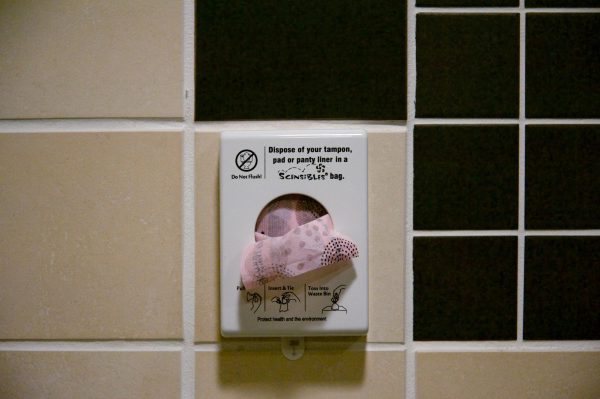Students Should Engage in Secretary of State Race
Almost immediately following President Donald Trump’s election in November 2016, political commentators and activists — particularly those on the left — turned their attention toward the 2018 elections.
We now find ourselves just six months out from those elections, in which every seat in the U.S. House of Representatives, several key seats in the Senate, and many vital state-level offices will be fiercely contested.
As usual, Ohioans find themselves in the thick of the political fray. Many key elections will take place in the state this November, including those for the governor’s mansion, where term-limited Governor John Kasich cannot seek reelection, and for progressive Senator Sherrod Brown’s seat, which will be hotly contested — as his frequently apocalyptic fundraising emails remind us. Those races are important and deserve energy from organizers and volunteers as we continue to grapple with how to best resist Trump on the national and state levels.
However, there is another statewide race that voters — especially Oberlin students and residents — should be paying attention to: Kathleen Clyde’s campaign for Ohio secretary of state. Electing a progressive candidate like Clyde to secretary of state has the potential to improve Ohio policy in tangible ways, particularly as it pertains to voter enfranchisement and election protection.
It’s hard to vote in Ohio, and that’s not by mistake. As I have previously argued in the Review, Ohio’s current secretary of state, Republican Jon Husted, has engaged in intentional efforts to disenfranchise voters who tend to lean blue, especially communities of color and students (“Voting by Mail Removes Barriers to Polls,” Dec. 2, 2016).
The elimination of the Golden Week — a period of time in which voters could both register to vote and submit a ballot during the same visit to the Board of Elections — was one glaring example of targeted voter suppression carried out by Husted.
Husted has also ordered significant voter purges over his time as secretary of state, eliminating over two million voters from the rolls under the pretense of inactivity since he assumed the office in 2011. This practice has been challenged to the Supreme Court, and oral arguments in Husted v. A. Philip Randolph Institute were heard in January 2018. The Court’s decision is still pending — if Husted wins, he or a Republican successor will be able to expand this practice and continue to disenfranchise Ohio voters.
Further, the secretary of state is a member of Ohio’s apportionment committee, which oversees redistricting efforts following every 10-year census. The next census is not until 2020, but several of the folks who will have the power to make Ohio’s district lines more equitable could be elected this year.
Currently, Ohio’s districts are a mess and skew conservative, as Oberlin students and residents know well, given that they are represented in the House by Republican Jim Jordan, who could not care less about Oberlin. A lot of recent activism in the state has focused on rectifying this issue — electing progressive candidates to the seats which comprise the apportionment board would be a significant step in that direction.
Given all the work necessary to undo the damage of recent years of Republican leadership in Ohio, it is difficult to understate the importance of Clyde’s candidacy. It’s not particularly constructive to say that one race is more important than another, especially when there are so many that demand our attention, but if such a ranking were developed based on both importance and competitiveness, the race for secretary of state would fall near the top.
Even beyond the general reasons to support a progressive candidate for secretary of state, Clyde’s personal qualifications for the position are outstanding. During her time in the Ohio House of Representatives, she has regularly championed voters’ rights through a civil rights lens. She has gained not only an extensive knowledge of many of the issues that plague Ohio voters, but has developed effective solutions to address them. If Clyde’s time in the State House is viewed as an audition for the job she is now seeking, she has performed with great competence and energy.
This Monday, April 23, Clyde will hold a fundraiser in Oberlin at the home of local constituents. More information about the event can be found on her website or through the local activist group Lorain County Rising. All Oberlin students who care about the future of voter rights in Ohio should strongly consider attending if they are able.
The current political moment is one unlike any other that current Oberlin students have experienced. It is fraught and uncertain. It is scary. It demands action, often in so many ways that it is easy to become overwhelmed.
Supporting Kathleen Clyde’s candidacy for secretary of state kills several proverbial birds with a single proverbial stone. Her potential to expand access to the polls across Ohio could open the door to further civil rights victories in the future.
In a moment which has already challenged so many of us in so many difficult ways, this race and this candidate provide Oberlin students and community members with a concrete opportunity to articulate our values and come together to support a more equitable and accessible Ohio. Let’s take advantage of it.




